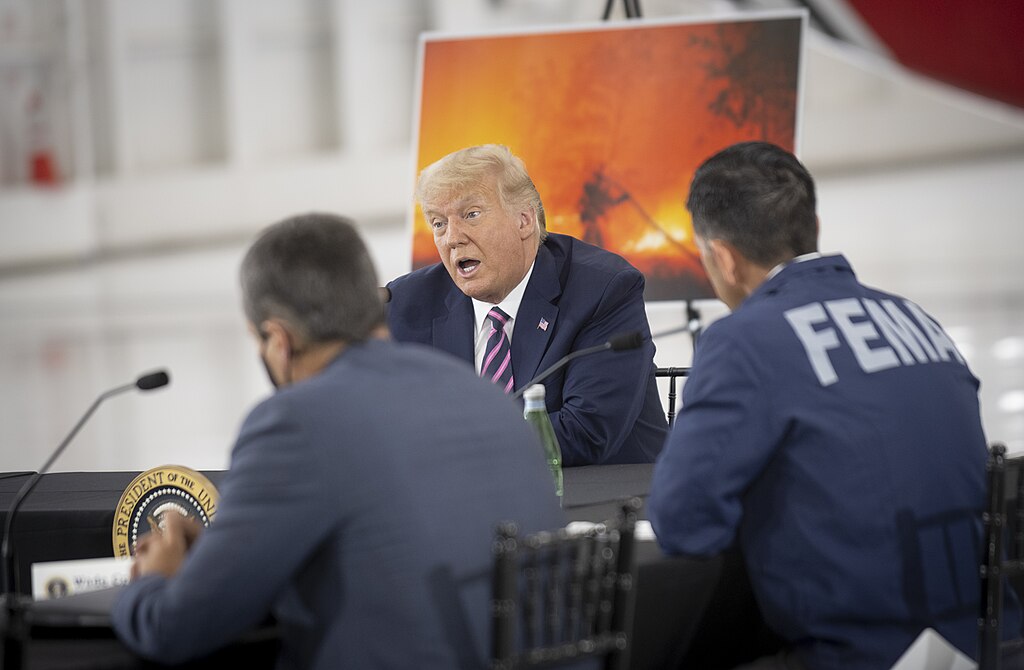Former President Donald Trump has reignited controversy by announcing a sweeping 25% tariff on all goods imported from Mexico and Canada, effective immediately upon his potential return to the White House. The bold declaration, made as part of his 2025 presidential campaign, ties the tariffs directly to what Trump called an “ongoing border invasion.” The move is already drawing sharp criticism from trade experts, business leaders, and foreign officials, who argue it could backfire on the U.S. economy.
Trump emphasized that the measure is aimed at halting illegal immigration and drug trafficking at the southern border. “This is a crisis we cannot ignore, and these tariffs will ensure Mexico and Canada take action,” he said in a campaign statement. However, critics warn that the proposed tariffs could disrupt trade with America’s two largest trading partners, increase consumer prices, and strain diplomatic relations.
Potential Economic Impact and Global Reaction
Trump’s proposed tariff would target a combined $1.5 trillion worth of goods imported annually from Mexico and Canada, according to the Office of the United States Trade Representative. Mexico is a key supplier of agricultural products, automobiles, and electronics, while Canada provides essential goods like crude oil, lumber, and machinery. Economists predict that imposing such tariffs could escalate costs for American manufacturers and consumers, potentially driving inflation higher.
Critics also argue that the tariffs could destabilize the recently renegotiated USMCA trade agreement, which replaced NAFTA under Trump’s first administration. The pact was designed to enhance trade relations between the three nations, but the proposed tariffs may jeopardize its framework.
Canadian Prime Minister Justin Trudeau and Mexican President Andrés Manuel López Obrador have not yet issued formal responses, but trade analysts suggest both countries would likely retaliate with tariffs of their own. This tit-for-tat approach could hurt American exporters, particularly farmers and manufacturers reliant on cross-border commerce.
Public Reaction: Supporters and Skeptics Speak Out
Trump’s announcement quickly ignited debate on social media platforms, with users expressing a range of opinions:
- @BorderSecurityNow: “Finally, a leader who takes border security seriously! These tariffs will force Mexico and Canada to act.”
- @TradeExpert2024: “A 25% tariff is economic suicide. This will hurt American businesses more than anyone else.”
- @RealPatriot44: “Trump is putting America first again. If it takes tariffs to secure the border, so be it!”
- @EconWatchDog: “This policy shows zero understanding of economics. Tariffs are a tax on Americans, not foreign governments.”
- @USFarmerVoice: “These tariffs could ruin us. Mexico is our biggest buyer of corn. What’s the backup plan?”
- @GlobalTradeGuru: “The USMCA will be toast if this happens. Canada and Mexico won’t sit quietly.”
Looking Ahead: A Risky Strategy?
While Trump’s supporters laud his tough stance on immigration and border security, experts remain cautious about the broader implications. Many argue that the proposed tariffs could further isolate the U.S. on the global stage and undermine economic growth at home. As 2024 election debates heat up, this policy proposal will likely remain a focal point of discussion.



 Federal Judge Blocks Virginia Social Media Age Verification Law Over First Amendment Concerns
Federal Judge Blocks Virginia Social Media Age Verification Law Over First Amendment Concerns  Trump Floats “Friendly Takeover” of Cuba as Rubio Reportedly Engages in Talks
Trump Floats “Friendly Takeover” of Cuba as Rubio Reportedly Engages in Talks  Iran Supreme Leader Ayatollah Ali Khamenei Killed in Israeli, U.S. Strikes: Reuters
Iran Supreme Leader Ayatollah Ali Khamenei Killed in Israeli, U.S. Strikes: Reuters  Trump to Address Nation as U.S. Launches Strikes in Iran, Axios Reports
Trump to Address Nation as U.S. Launches Strikes in Iran, Axios Reports  Trump Warns Iran as Gulf Conflict Disrupts Oil Markets and Global Trade
Trump Warns Iran as Gulf Conflict Disrupts Oil Markets and Global Trade  Australian PM Calls Alleged Western Australia Terror Plot “Deeply Shocking” After Arrest
Australian PM Calls Alleged Western Australia Terror Plot “Deeply Shocking” After Arrest  Trump Media Weighs Truth Social Spin-Off Amid $6B Fusion Energy Pivot
Trump Media Weighs Truth Social Spin-Off Amid $6B Fusion Energy Pivot  Pakistan-Afghanistan Tensions Escalate as Taliban Offer Talks After Airstrikes
Pakistan-Afghanistan Tensions Escalate as Taliban Offer Talks After Airstrikes  Trump Floats Ted Cruz for Future U.S. Supreme Court Nomination
Trump Floats Ted Cruz for Future U.S. Supreme Court Nomination  Denver Mayor Orders Police to Protect Protesters, Restricts ICE Access to City Property
Denver Mayor Orders Police to Protect Protesters, Restricts ICE Access to City Property  Pentagon Leaders Monitor U.S. Iran Operation from Mar-a-Lago
Pentagon Leaders Monitor U.S. Iran Operation from Mar-a-Lago  U.S.-Israel Strike on Iran Escalates Middle East Conflict, Trump Claims Khamenei Killed
U.S.-Israel Strike on Iran Escalates Middle East Conflict, Trump Claims Khamenei Killed  Macron Urges Emergency UN Security Council Meeting as US-Israel Strikes on Iran Escalate Middle East Tensions
Macron Urges Emergency UN Security Council Meeting as US-Israel Strikes on Iran Escalate Middle East Tensions  Philippines, U.S., and Japan Conduct Joint Naval Drills in South China Sea to Boost Maritime Security
Philippines, U.S., and Japan Conduct Joint Naval Drills in South China Sea to Boost Maritime Security  Pentagon to Halt Ivy League Programs for U.S. Military Officers Starting 2026
Pentagon to Halt Ivy League Programs for U.S. Military Officers Starting 2026  Trump Launches Operation Epic Fury: U.S. Strikes on Iran Mark High-Risk Shift in Middle East
Trump Launches Operation Epic Fury: U.S. Strikes on Iran Mark High-Risk Shift in Middle East  USITC to Review Impact of Revoking China’s PNTR Status, Potentially Raising Tariffs on Chinese Imports
USITC to Review Impact of Revoking China’s PNTR Status, Potentially Raising Tariffs on Chinese Imports 
































